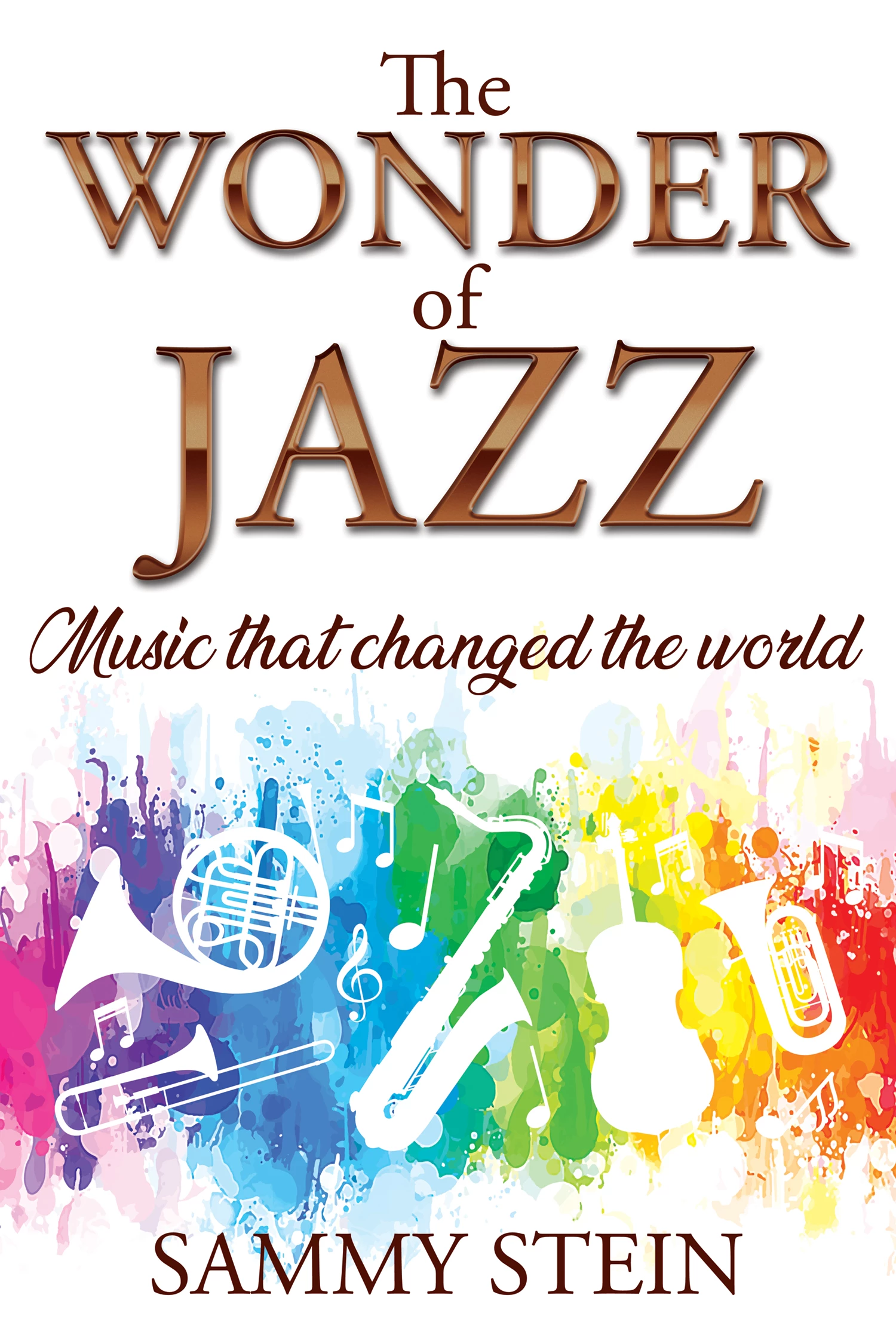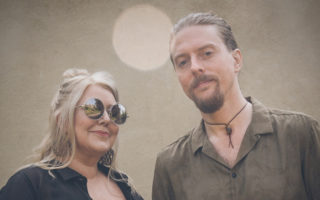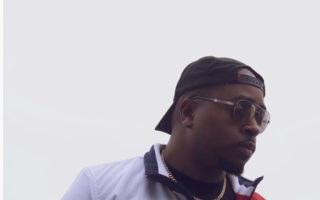Hello Sammy, how are you?
Very well, thank you.
Congratulations on the release of The Wonder Of Jazz. How does it feel?
I feel nervous and excited. It is also like letting something go. Once something is released, you lose a bit of the control over it, and the sudden release from the immersion can leave you a bit empty, but I am also really pleased to see the book published because its journey was a different one for me. A US publisher commissioned me, and we were doing fine. Then they split at the top, so I was left with no publisher, but I had input from over 100 people, so I decided I was not going to allow their words to be lost – this is something that happens to musicians, and I just thought, ‘not on my watch!’ So I decided to go down the self-publishing route. I had done this before with an editor in the U.S., who proved to be a fair editor and technologically savvy, so she did the formatting and other things, but it was down to me this time. So, first, I found an editor and was lucky that Richard Sheehan could find time to do the book, liked music and understood exactly what I was trying to do with the material. After searching for a while, I found a great cover artist, and they brought in a typesetter who also offered to format. Suddenly everyone was offering to do their contracted work plus more. It was incredible. We worked as a team. Gradually, my scribbles began to form into something readable, and the words of the musicians were incorporated in such a way they made sense. I am delighted with the result, but it is largely down to the team of experts I had working with me.
What surprised you the most in your research for it?
The honesty of the musicians. I asked them questions like how they made their money and how much streaming generated. They answered with clarity, many of them saying they had wanted to speak about some things for ages – bullying, lack of funding, the positivity around jazz, and their concerns. It is all in the book. Every question led to others as we discussed things and delved into reasons and whys.
You are a blogger, journalist, author, and music reviewer; how did it all begin for you?
One article on a free form combo called the People Band for London Jazz News. I never thought I would write another article on jazz and was pleased to see a piece published. Then I spoke with the editor at the time of All About Jazz, who called me and gave me two columns. Then came Jazz in Europe, Kind of Jazz, Something Else, Platinum Mind, Jazz Views, and Free Jazz Collective. I now write for the last four columns due to time constraints, and these are the ones that suit my taste and style. They also have great editors (I need good editors).
You are very much into jazz, among other genres. Was there any particular piece of music that was the catalyst for this?
You might laugh, but I was very into punk and new wave music after many years in classical music as a kid. I sang opera in productions like Orpheus and Euridice and Carmen, Porgy and Bess, and others, and was in bands. I played clarinet and oboe in various orchestras, but when I found certain tracks, they kind of led to jazz – The Blockheads , PIL, and The Fall were some of my favourite groups when a kid, but I actually enjoy some other genres. I enjoyed opera, not so much attending but performing was fun, although I was rubbish at the discipline needed to achieve highly as a performer in any genre.
Your work has taken you to many places and festivals; what’s been your favourite so far?
I really enjoyed some of the jazz in South America and in the Southern States of the U.S., talking to people like a guy who used to play with Ellington and other musicians I met there. I enjoyed running a small festival in London, sponsored by the incredible U.S. station Jazz Bites Radio. Just choosing, curating the event, and having musicians willing to come over from New Orleans, Europe, and the U.K. was amazing.
I love gigs and festivals for the diversity of the music and people you meet. Some of the free-form gigs I have been to have literally blown my mind. At most festivals, you find moments when you find yourself thinking ‘why did I come?’ and others where you get so lost in the music, time just goes and you briefly wonder where you are. I really like radio work too.
You review music; how do you approach your reviews?
I listen, listen and then listen again. Unless checking spellings of names etc., I try not to read other reviews or even the press kit sometimes. I then try to think of a reader and how they might read a piece and ask some questions. Does the article explain the background to the music? Does it convey the atmosphere? Does it express how the music struck me as a listener? I try to avoid long-winded descriptions or using words that most people cannot understand. I get frustrated when I cannot find a word that sums up the precise sound or feeling music invoked. I check, double-check, and then send the review to an editor who I hope checks again before publishing. So far, the feedback from musicians tells me this approach is OK.
What do you like to listen to in your downtime?
A real mix. From free form jazz to groups like Blurt, orchestral and modern music. In every genre, there is music I like and music I don’t. It really is that simple. For me, most of what I like falls under a broad ‘jazz’ spectrum, but by no means all of it.
If you could put together your own little music fest, what three acts would you have?
Ooh, I could never limit it to three. Since you asked, I have thought of having a three-day event. On the first day, I would have teachers and young people and orchestras, so they get the chance to experience audiences and events. The next day I would have a U.K. fest with acts from the U.K. and master classes. The master classes would be maybe Hannah Horton on tenor sax because she is innovative and fearless, Davey Payne on alto because he demonstrates how influences of many styles create ferocious free playing, Paul Jolly would give a class on bass clarinet, Hannah Marshall would be on ‘cello, Gareth Lockrane on flute, Sarah Gail Brand on trombone and various others. I know there are other amazing UK musicians but these I have played with or seen perform myself. The Brit fest would include Emily Saunders, Binker and Moses, Sarah Moule, Collette Cooper, Clare Teal, Terry Edwards, Alan Barnes, and Nigel Price, and Courtney Pine would close it with a massive celebration and bring musicians in like Yazz Ahmed, Nubyia Garcia – Tony Kofi – just so many. The third day would see International jazz musicians join like Ivo Perelman, Mats Gustaffson, Jane Ira Bloom, Jane Bunnett, Leo Pellegrino, Elvis Costello, and Lady Gaga. I have reasons for including all of them, but they are too many to go into, and every time I think I have it covered, I think of someone else, so basically a massive festival one day for young people, one for the U.K. and one for international plus all those before. Just a tiny event, as you can see lol.
COVID impacted the creative industry; what kept you motivated?
I was struck by how profoundly affected musicians were – incomes literally falling off a cliff and work vanishing. I was also struck by their positivity and support for each other and how they overcame technological problems and worked things out. Many spoke to me about their situations, so I wrote a book, interviewing 18 of them, including Collette Cooper, Tony Kofi, Ray Gelato, Collette Cooper, and more. I published it because I wanted people to understand how musicians’ lives were affected. I used the money it brought in to support some venues – small amounts, but I figured it might help because if there were no venues for the musicians to return to after the pandemic, what would happen then? What kept me motivated was the music, musicians, and my students.
What are you listening at the moment?
Radiohead actually. Also, yesterday I re-listened to Yves Leveille and a little Blurt.
What are you reading now?
Oddly enough, a book on soil and one on the neotropics, and I occasionally dip into Ted Gioia’s latest book. The first is all about the soil, its life, connections, and so on, and the second on places like The Amazon, the tropical belt and plant species, animals, weather, and how it is all connected to the rest of the world. I like subjects that have connections. For me, music and plants are two great levellers. I feel fortunate to write for a supportive set of columns and have the professional side of my work with sleeve notes, liners, bios, etc. I am also incredibly aware of the support from the musicians and others in jazz like Jazz Bites Radio. I believe valuing and supporting each other is what music is about.
What are you looking forward to next?
Seeing how the book does and the reactions. It hit number one on Amazon, which was a surprise. The reaction from people has been incredible, and I want those in the book to understand how important their words are. The book is also now available on Amazon, Barnes and Noble, and Waterstones picked it up and put it on their lists, all of which is a complete surprise. People have sent me contacts and possible reviewers in the music world, which is amazing again.
Book-wise, I want to write a book on the spiritual side of jazz, but whether this happens, I am not sure, as I am not sure if I would self-publish again, though I would recommend my editor and the rest of the team as their work was immense. When I put the book together, there was a chapter on spiritual jazz, but it grew exponentially until I had far too much material for just one chapter and have material for a book. However, it depends on finding a publisher.
Short term, I am doing work on the botany side of things and also going to quite a few performances over the next couple of months – large ( Barbican) and smaller ( Hampstead Jazz Club) venues, which is the mix I like, plus Latitude Festival in Suffolk and another festival in Ipswich in July. I hope to find some jazz in San Francisco in the summer.
Order Sammy Stein’s new book “The Wonder Of Jazz: Music That Changed The World” HERE.




